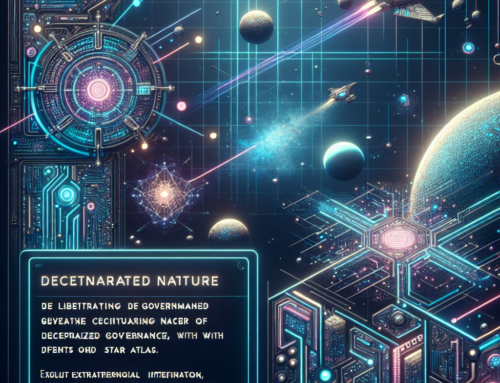Star Atlas: The Future of Privatization Explored

Star Atlas: The Future of Privatization Explored
In the rapidly evolving world of blockchain gaming, Star Atlas stands out as a ground-breaking space exploration and strategy game built on the Solana blockchain. This game’s architecture doesn’t just provide entertainment; it serves as a lens through which we can explore the concept of privatization in the decentralized economy.
What is Privatization?
Privatization traditionally refers to the transfer of ownership from the public sector to private entities. It can apply to various sectors, from utilities to transportation, and now, in the realm of gaming and metaverse experiences. At its core, privatization aims to enhance efficiency, performance, and user satisfaction through competition and free-market principles.
How Privatization Relates to Star Atlas
In Star Atlas, players enter a universe where they can buy, sell, and trade in-game assets that utilize blockchain technology. Here’s how the principles of privatization are demonstrated:
-
Ownership: Unlike traditional games where assets are controlled by developers, Star Atlas allows players to have full ownership of their in-game items. This ownership is made possible through non-fungible tokens (NFTs), providing a sense of value and investment.
-
Economy: Star Atlas features a player-driven economy. Users can influence market dynamics by trading assets, simulating privatized economic systems in real life. This autonomy allows players to set prices and create demand based on personal discretion rather than a centralized authority.
-
Governance: The game employs decentralized governance models, allowing players to vote on future developments and changes. This community involvement resembles the privatization concept where stakeholders have a say in business decisions, leading to enhanced accountability and innovation.
-
Skin in the Game: Similar to traditional privatization, Star Atlas incentivizes players through stakes in the ecosystem. Investments in ships, land, and technology create personal ties to the game’s development, making players more engaged in its success.
Technological Backbone
Star Atlas operates on the Solana blockchain, which is known for its high throughput and low transaction fees, making it an excellent fit for games that rely on real-time interactions and transactions. This technological foundation supports efficient private ownership of assets and seamless trading experiences.
Conclusion
As we look to the future, Star Atlas is a pivotal experiment in privatizing aspects of gaming and metaverse economies. It exemplifies how ownership, governance, and decentralized economies can be reimagined through blockchain technology.
For those interested in delving deeper into Star Atlas and how privatization shapes this innovative universe, check out our analytical tools at Titan Analytics Star Atlas Data Modules or reach out through our contact page at Titan Analytics Contact. We look forward to exploring this exciting frontier with you!




